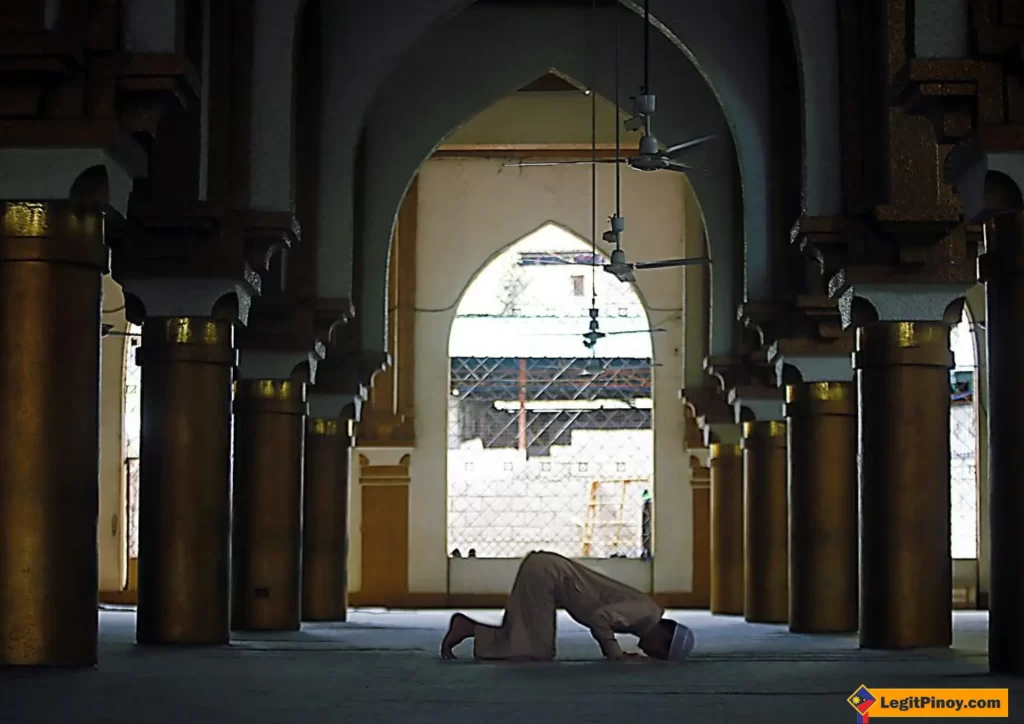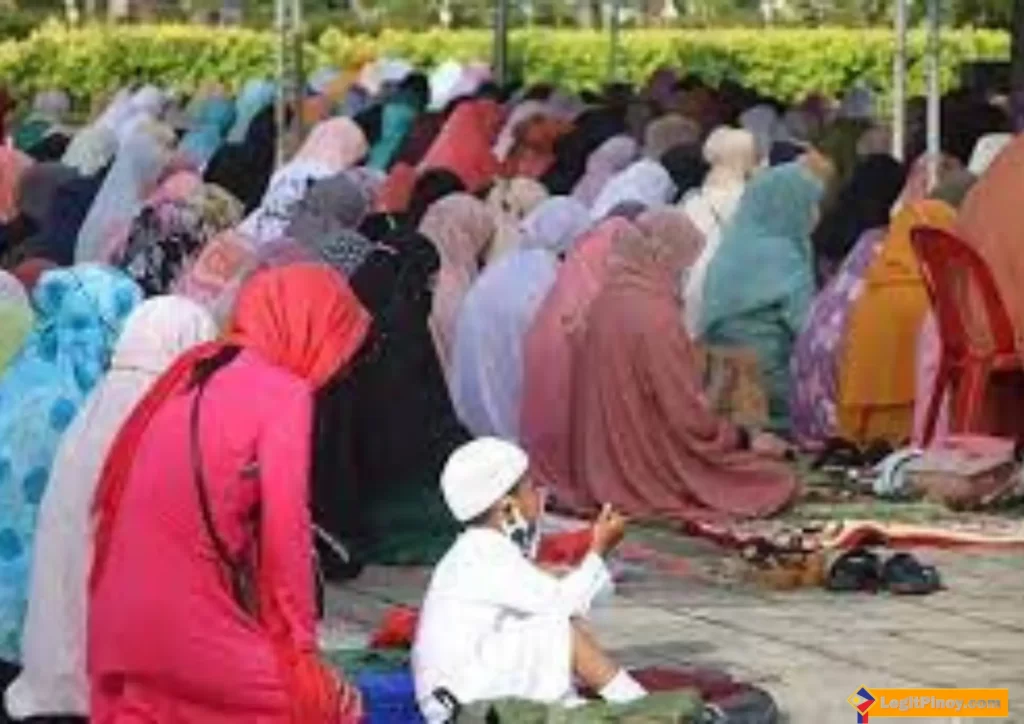June 17 Important Holiday, Monday: Eid’l Adha Remembrance

Introduction
Eid’l Adha, one of the most important holidays on the Islamic calendar, honors Prophet Ibrahim’s willingness to sacrifice his son in obedience to God. In honor of this significant religious event, the Philippine government has designated June 17, 2024, as a public holiday.
Table of Contents
Advertisement


What is Eid’l Adha?
Eid’l Adha, also known as the “Festival of Sacrifice,” commemorates the story of Prophet Ibrahim (Abraham) and his unwavering faith in God. Muslims around the world celebrate it with prayers, feasting, and the ritual sacrifice of an animal, typically a sheep, goat, or cow, to commemorate Ibrahim’s sacrifice. The meat is distributed equally among family, friends, and those in need, instilling a sense of belonging and generosity.

Eid’l Adha in the Philippines
The celebration of Eid’l Adha holds deep historical roots among Filipino Muslims. The Philippine government officially recognized Eid’l Adha as a national holiday to honor the Muslim community’s cultural and religious practices. This acknowledgment respects the nation’s religious diversity and promotes inclusivity and understanding among different cultural groups.
June 17, 2024: Eid’l Adha Public Holiday
On June 17, 2024, the Philippines will observe Eid’l Adha as a public holiday. This declaration means that government offices, schools, and many businesses will be closed, allowing Muslim Filipinos to celebrate this significant day with their families and communities. The decision has elicited encouraging responses from various groups, with many complimenting the government’s commitment to recognizing and supporting religious pluralism.
Sponsored by:



How Eid’l Adha is being Celebrated in the Philippines
A unique blend of traditional Islamic practices and local customs marks Eid’l Adha in the Philippines. Filipino Muslims begin the day with a special prayer called the Salat al-Eid, held in mosques and open fields. This is followed by the ritual sacrifice, in which wealthy households sacrifice an animal and distribute the flesh to relatives, friends, and the less fortunate. Community feasts, charity initiatives, and family reunions are popular, showing a spirit of generosity and belonging.
Significance of Recognizing Eid’l Adha as a Public Holiday
Recognizing Eid’l Adha as a public holiday underscores the Philippines’ commitment to religious freedom and cultural diversity. It highlights the importance of the Muslim community’s contributions to the nation’s cultural fabric and promotes unity and mutual respect among Filipinos of different faiths. This recognition fosters a deeper understanding and appreciation of Islamic traditions and strengthens the nation’s social cohesion.
Observing Eid’l Adha Respectfully
For non-Muslims, observing Eid’l Adha in a respectful way involves understanding and appreciating its significance. Participating in community events, extending greetings to Muslim friends and colleagues, and respecting the customs and rituals associated with the holiday are ways to show support. It is also an opportunity to learn more about the Philippines’ rich cultural and religious diversity.
Conclusion
The declaration of June 17, 2024, as a public holiday in honor of Eid’l Adha is a testament to the Philippines’ dedication to celebrating and respecting its diverse religious and cultural heritage. This holiday not only allows Filipino Muslims to observe an important religious event but also serves as a reminder of the nation’s commitment to unity, inclusivity, and mutual respect.
As we honor this day, let us embrace the values of generosity, community, and understanding that Eid’l Adha represents, strengthening the bonds that unite us as one nation.
What is Eid’l Adha?
Eid’l Adha, also known as the “Festival of Sacrifice,” is a significant Islamic holiday commemorating the willingness of Prophet Ibrahim (Abraham) to sacrifice his son in obedience to God. It is marked by prayers, feasting, and the ritual sacrifice of an animal.
Why is June 17, 2024, a holiday in the Philippines?
The Philippine government has declared June 17, 2024, a public holiday to honor Eid’l Adha, recognizing its importance to the Muslim community and promoting religious diversity and inclusion.
Are businesses and schools closed on June 17, 2024?
Yes, as a public holiday, government offices, schools, and many businesses will be closed to allow for the celebration of Eid’l Adha.
How can non-Muslims respectfully observe Eid’l Adha?
Non-Muslims can show respect by understanding the significance of the holiday, participating in community events, extending greetings to Muslim friends and colleagues, and respecting the customs and rituals associated with the celebration.
Where can I find more information about Eid’l Adha celebrations in the Philippines?
You can find more information through local mosques, community centers, and the National Commission on Muslim Filipinos. Additionally, government announcements and local news sources often provide updates on public holidays and celebrations.
What are some traditional foods associated with Eid’l Adha in the Philippines?
Traditional foods include dishes made from the sacrificial meat, such as beef or goat stews, grilled meats, and a variety of regional specialties. Feasting and sharing meals with family and the community are central to the celebration.
Is Eid’l Adha a new public holiday in the Philippines?
Eid’l Adha has been recognized as a public holiday in the Philippines for several years, but the specific date can vary annually based on the Islamic lunar calendar. June 17, 2024, is the declared date for this year’s celebration.
References and Acknowledgements
References:
- National Commission on Muslim Filipinos. (2023). “Eid’l Adha: Its Meaning and Significance.”
- Office of the President of the Philippines. (2024). “Proclamation No. XYZ: Declaring June 17, 2024, as a Special (Non-Working) Holiday.”
- Philippine Statistics Authority. (2023). “Demographics of Muslim Filipinos.”
Acknowledgements:
- Special thanks to the National Commission on Muslim Filipinos for their insights and resources.
- Appreciation to local community leaders for their contributions and perspectives on Eid’l Adha celebrations in the Philippines.
By understanding and celebrating Eid’l Adha, we honor the rich traditions of our Muslim brothers and sisters and strengthen the bonds that unite us as a nation.
You may also read the following:
- Wow888
- betso88
- bk8
- Majesty33
- Okebet168
- lodi291
- Phl63
- JiliCC
- jlbet
- phjoy
- phwin
- slotvip
- panalobet
- mnl63
- 10jili
- ok777 win
- jili22
- Lucky777 Casino
- lodigame
- Peso888
- intgames
- 22win
- milyon88
- ME777
- luckyjackpot888
- MNL777
- YY777
- SuperPH
- FC777
- JILIHOT
- Big Baller Club
- JILIPLAY
- MWPLAY888
- Playzone
- S5 Casino
- 684COM
- Terea Play
- GG777 Casino
- DBX
- PHLBet
You may also like:
Get Bonuses Here:

Jillian Cruz is a versatile blogger and content writer known for her curiosity and passion for writing about various topics. Her engaging writing style attracts readers from all backgrounds. She also collaborates with brands and publications, bringing her unique perspective to marketing campaigns and articles. With her creativity and dedication, Jillian continues to make an impact in the world of blogging and content creation.
